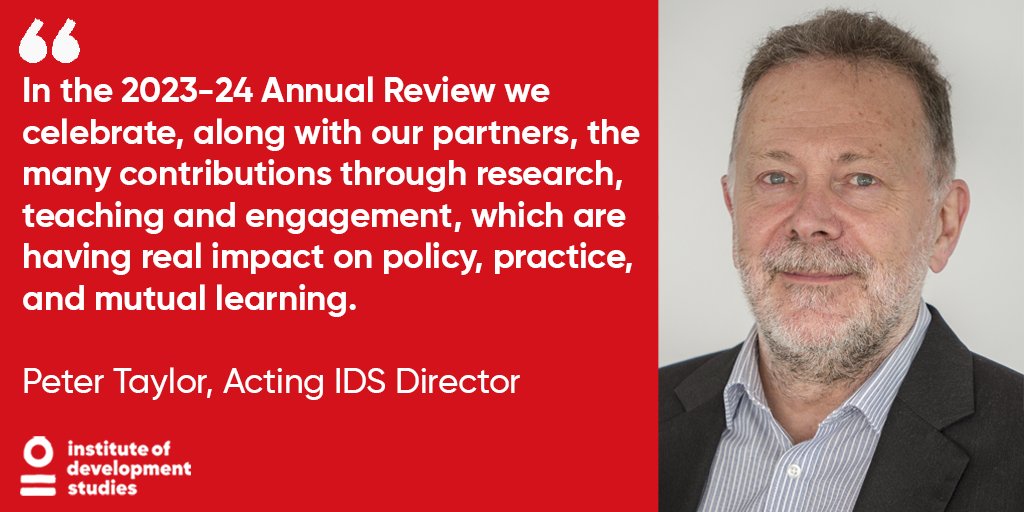Case study
Objective
To enable the sanitation and hygiene sector to innovate, adapt and collaborate in a rapidly evolving landscape, feeding learning into policies and practice.
Relevance
3.6 billion people don’t have their own safe toilet. Living without a toilet and handwashing facilities can not only cause health issues for the individual, but the community as a whole. In addition to the health risks, a lack of access to sanitation facilities is a major cause of risk, anxiety, economic and psychosocial stress.
Coordination across the sanitation and hygiene sector is complex, with local and national governments, large development agencies, small NGOs all working towards a common goal in greatly varying contexts. Innovations and solutions are being trialled and are succeeding, but with limited opportunities to share learning and accelerate global progress.
Design
Previously working as the CLTS Knowledge Hub, the Sanitation Learning Hub (SLH) team at IDS has over a decade of experience supporting participatory research and learning activities in the sanitation and hygiene sector. SLH has built longstanding relationships and trust with diverse partners across the sector.
SLH has deep roots in the history of participatory methods at IDS, with the involvement of Robert Chambers from the inception of the CLTS Knowledge Hub. SLH has developed Rapid Action Learning approaches that focus on timely, relevant and actionable research that is grounded in reality.
The programme strongly advocates for honest reflections on what is working and what isn’t working in the sanitation and hygiene sector. Activities are designed with the belief that, as a respected learning partner, SLH can provide a neutral, safe space for sector players to come together to share their lessons and challenges.
With Sustainable Development Goal (SDG) 6.2 pushing for safely-managed sanitation and hygiene for all, SLH consistently asks who is being included and who is being excluded, using the SLH platform to start and energise much-needed conversations.
SLH mainly achieves this through:
- Workshops with local, national and global actors.
- Production of evidence-based practical guidance.
- Trialling new participatory approaches and training on methods.
- Designing research and learning agendas for partner organisations.
- Providing a platform to share learning, knowledge and ideas (through the SLH website and other channels).
Examples of some of these activities include:
- SLH priority workstreams:
- SLH blogs and Practitioner Voice stories
- Immersive research with FINISH Society India
- Engaging men and boys in WASH
- Guidelines and framework for monitoring and evaluation
- Webinars on adaptations during and beyond Covid-19 (delivered with UNICEF)
- Learning support to Nigeria’s WASH civil society network
- Participatory Video project with SNV Indonesia
Delivery
The programme activities are coordinated by a core team at IDS along with two in-country focal points based in Nigeria and India:
- Jamie Myers, Research and Learning Manager
- Naomi Vernon, Programme and Communications Manager
- Ruhil Iyer, Research Officer
- Elaine Mercer, Communications and Networking Officer
- Alice Webb, Communications and Impact Officer
- Stacey Townsend, Programme Officer
- Laurie Spicer, Project Support Officer
- Nanpet Chuktu, In-Country Focal Point Nigeria
- VR Raman, In-Country Focal Point India
SLH collaborates with a diverse range of partners including local governments, development organisations and research institutions. Some of our partners include:
- UNICEF (HQ, regional offices and country offices)
- WaterAid (global and country offices)
- Institute for Sustainable Futures, University of Technology, Sydney
- Water for Women
- UNOPS India
- NEWSAN
- SNV Indonesia
- Islamic Relief Pakistan
Participant information
Over the course of the programme, SLH has worked with a variety of actors in the WASH sector, including:
- Behaviour Change Communication Officer
- Researcher
- Public Health Engineer
- Monitoring and Evaluation Officer
- WASH Programme Manager
- WASH Advisor
Participant numbers
Approximately 2000 (includes collaborators and workshop and event attendees)
Impact
The impact of SLH’s activities is varied and wide-ranging, for example from a SLH blog author being asked to present at a conference because of their piece, to SLH outputs and activities informing or influencing national level policies on sanitation and hygiene.
Examples of the SLH impact within priority topics include:
- Area-wide sanitation programming: Exchange of ideas at workshops have led to programmatic adaptations and increased government investment in WASH. Multiple participants mentioned that the workshops were an important platform to give a voice to local governments on sanitation. In India, SLH Rapid Action Learning workshops bringing together government staff and WASH actors across several districts have led to the sharing of ideas and innovations which other participants are now adopting or planning on trialling in future interventions.
- Climate change, resilience and sanitation services: WASH partners have reported increased knowledge and capacity, as well as changes in programming and policy such as the integration of climate risk assessments into programming and strategies. Forthcoming participatory workshops will encourage peer-to-peer learning between partners, as well as bringing people together for broader discussion within the sector.
- Gender, equity and social inclusion (GESI): Among other activities, SLH have undertaken participatory research such as immersive research with FINISH society in India and participatory video research with female headed households in Indonesia, in collaboration with SNV and local government. This workstream has led to the integration of GESI-related recommendations into organisations’ strategies and programmes.









